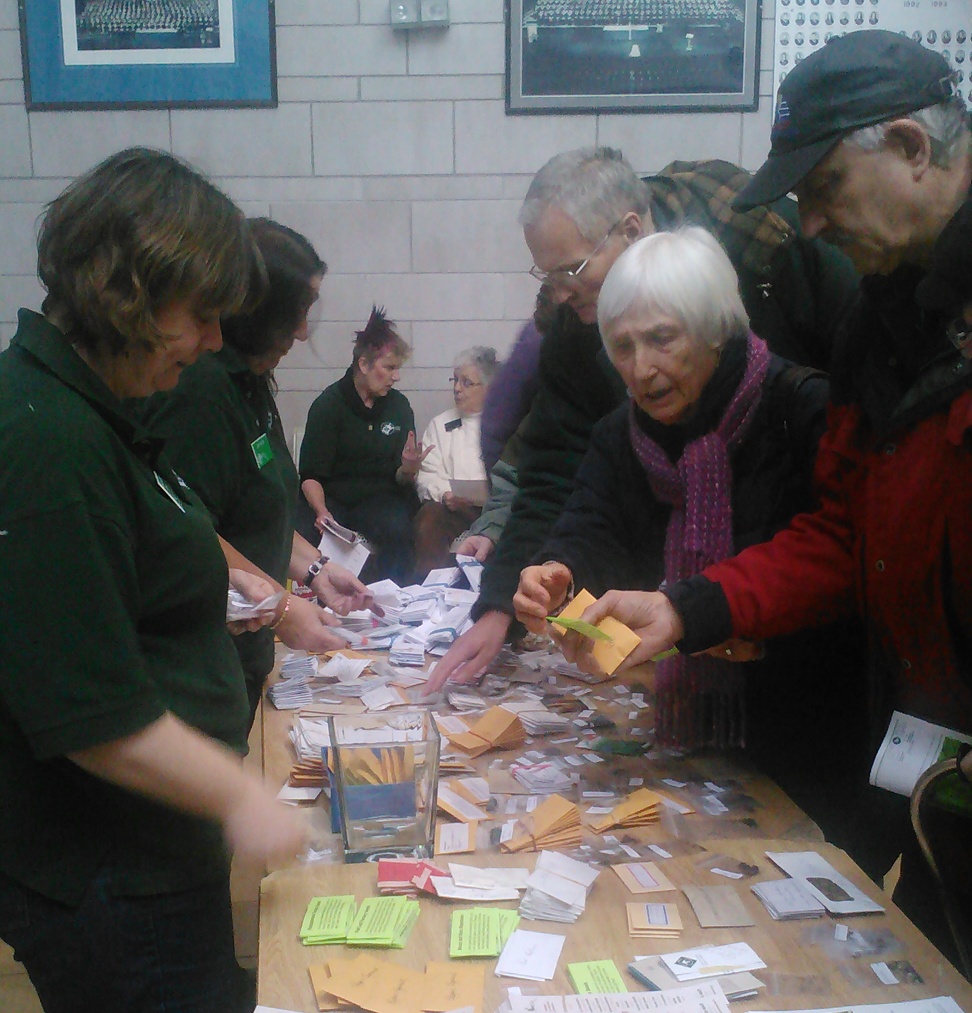
 |
 |
|
|
Not a Seeds of Diversity Member yet? Join now!In this Issue: The Search for the Perfect Tomato GM Alfalfa - Day of Action Apr 9 Pollinator Patch - Wild Bees for Food Crops |
||
 |
 |
March 2013
We LOVE checking our mailbox these days! As he was going through the Member Seed Directory a couple of months ago, our Executive Director Bob identified ~1000 rare seeds listed by members. We sent out requests for samples to add to our Seed Library, and every day envelopes of seed have been arriving which will be grown out and expanded in coming years. Thanks so much to the members who have been supportive of this project!
In this newsletter edition, we bring to you Yves Gagnon's hunt for the perfect tomato, updates on native pollinator research, and an exciting new seed-borne disease project we've recently received funding for. We especially want to highlight the GM Alfalfa Day of Action being organized across the country for April 9th. GM Alfalfa is in danger of being released onto the Ontario market this spring - a move that would have serious implications for the entire organic industry and unknown effects on pollinator populations. Please read the article below for ways to get involved in your community!
The Search for the Perfect Tomato
Many of you are interested in the history of seed varieties. Here’s a story from member grower Yves Gagnon of Les Jardins du Grand-Portage in Quebec – and his quest for the perfect tomatoes:
GM Alfalfa - Day of Action Apr 9
Read on for more info on a call to action for April 9th to help stop the release of GE alfalfa. This is an incredibly important and urgent issue. Since alfalfa is an insect-pollinated crop, the risk of contamination from GE to non-GE alfalfa is very high. Alfalfa is a widely-used forage crop and a very important feed protein and nitrogen-fixing soil builder for orgnic farms. Please come out & spread the word!
Box of Enlightenment
Many of you have undoubtedly run into disease problems in your gardens. If so, you’ve probably put a fair bit of thought into how to control and prevent them. Diseases can be carried in the air, splash up from the soil, or be transferred through pests. But it’s possible that disease could also have entered your garden direct from the seed. Seed borne diseases pose an especially challenging problem for organic growers as they have a limited number of prevention methods to deal with potentially infected seeds. Should prevention methods fail, they are also at greater risk than conventional growers since - once a disease takes hold in a field - eradication methods are also limited. It’s therefore really important that seed borne diseases be effectively controlled.
Pollinator Patch - Wild Bees for Food Crops
It's important to note that honeybees are far from being the only – or even necessarily the most effective – pollinating bees in Canadian agriculture. Pollination refers to the movement of pollen grains, which must be transferred from the male to the female parts of flowers. Without this vital transfer of pollen, the plant is unable to form seeds or develop further into the edible foods that sustain both ourselves and wildlife. Pollinators are keystone species which have an essential role to play in maintaining the structure of ecosystems. Meet a few of our native pollinating bees:
